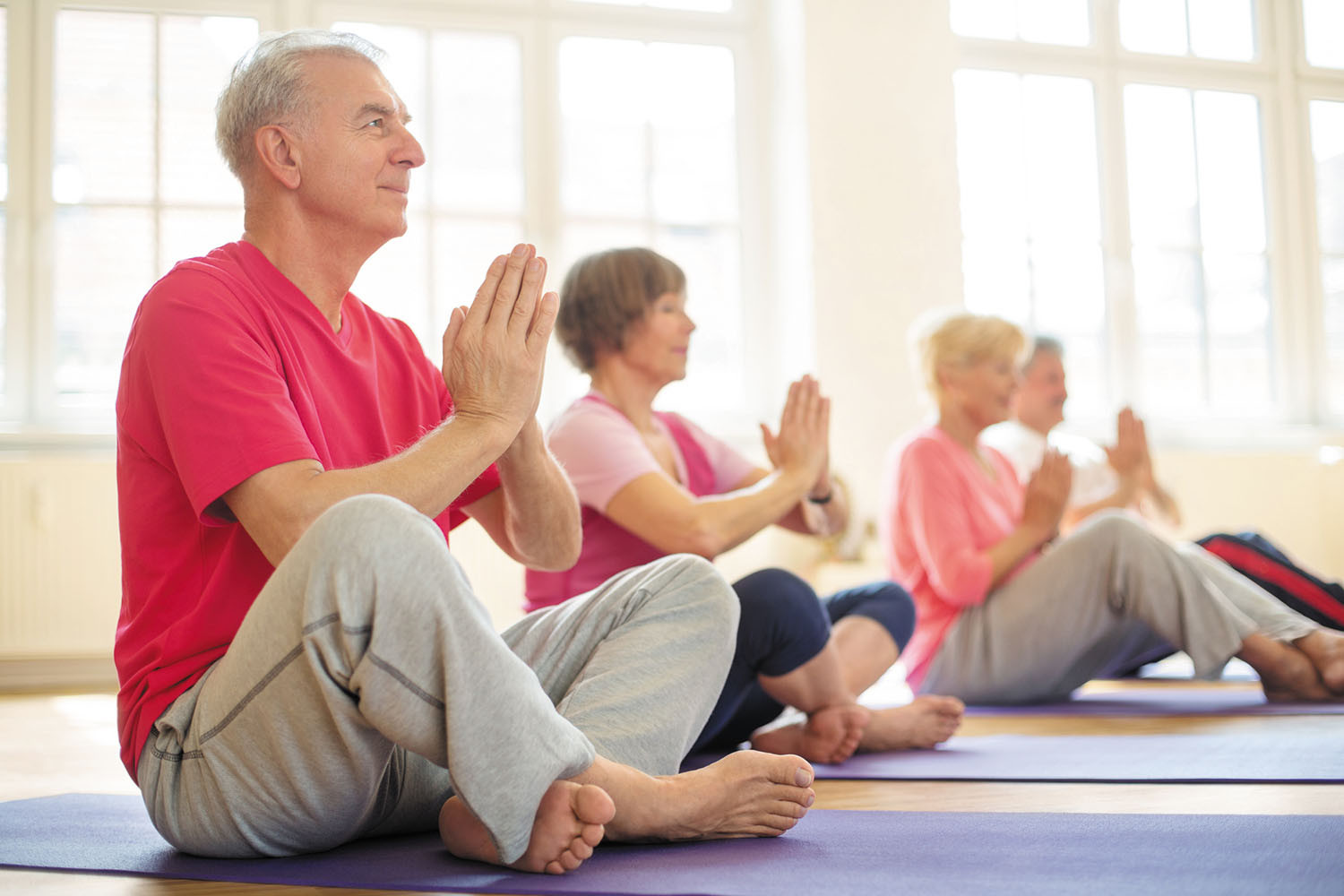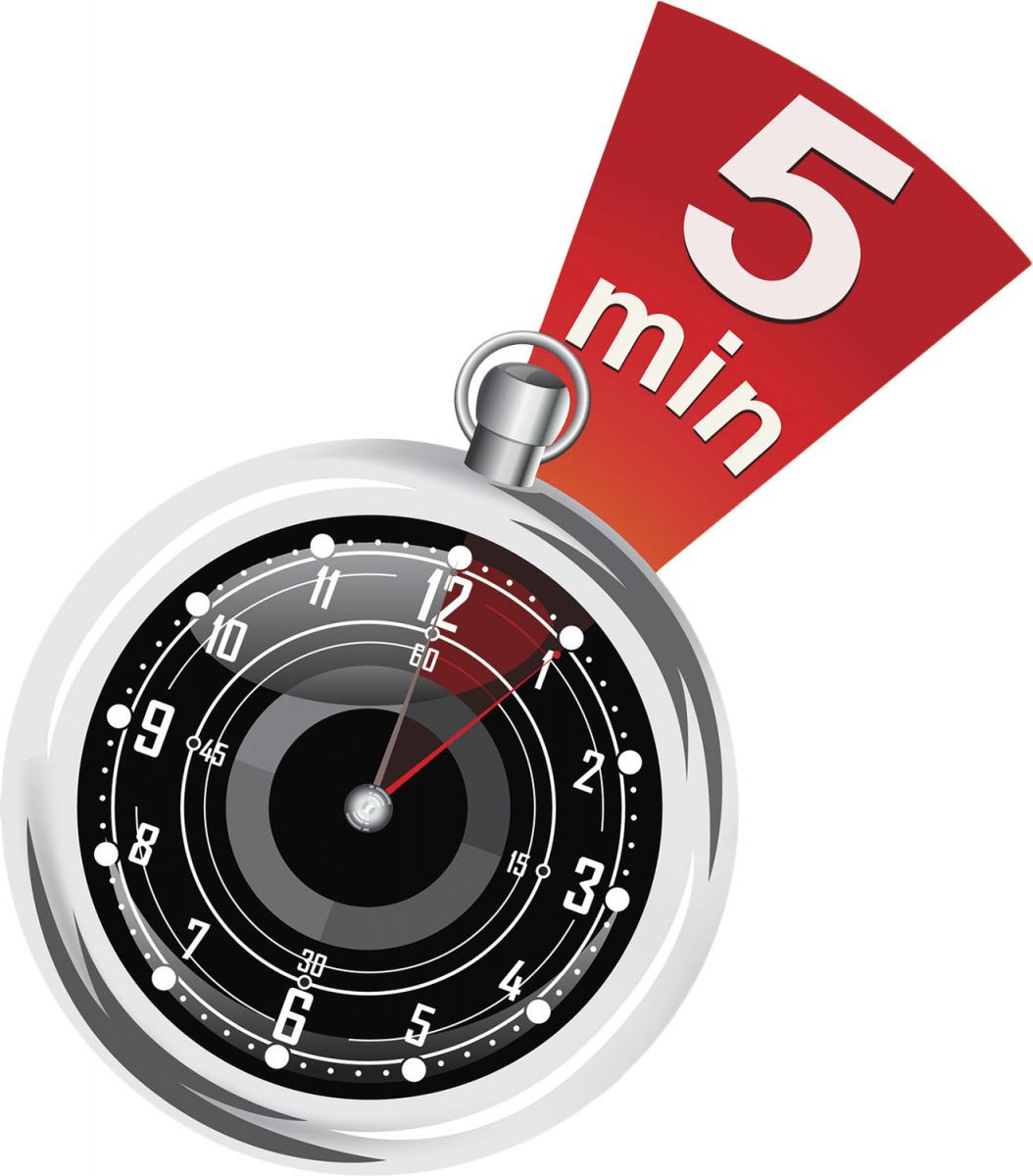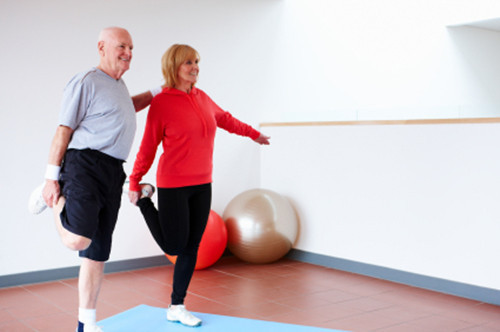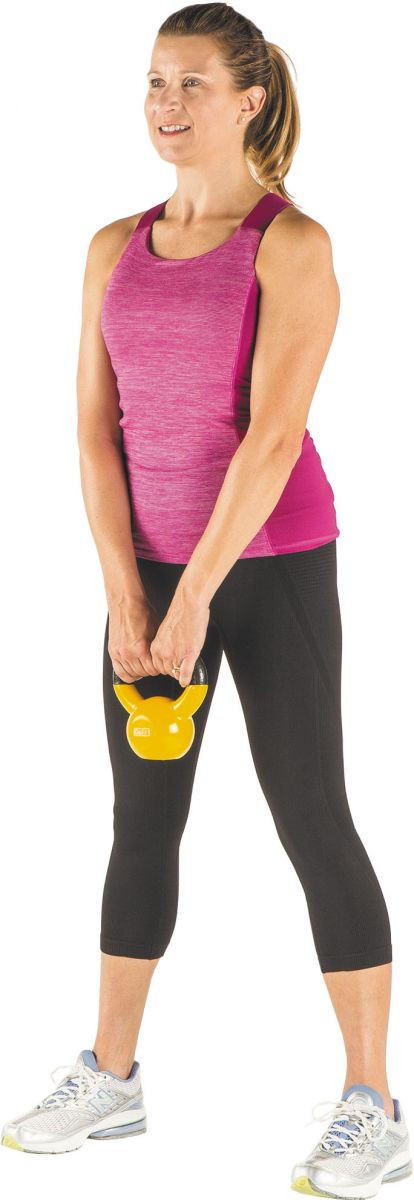
Driving with arthritis pain: Stay comfortable — and safe — behind the wheel

Daily cup of coffee may prevent afib recurrence

Gene-editing therapy lowers harmful blood fats in early study

What is EMDR therapy, and who can it help?

GLP-1 drugs versus bariatric surgery for treating obesity

Two dumbbells, three exercises, and 10 minutes

Easing the emotional burden of IBS

Modify your push-ups to meet your fitness level

What is long QT syndrome?

Stroke survivors may benefit from very low LDL levels
Exercise & Fitness Archive
Articles
A risky combination: Healthy weight but unhealthy activity level
News briefs
Many people think the only reason for regular exercise is that it helps you maintain a healthy weight. Not true. A sedentary lifestyle can cancel the potential heart benefits of weight control, according to a study published online Dec. 4, 2018, by the American Journal of Cardiology. Researchers looked at five years' worth of health survey responses and weight calculations from thousands of overweight and normal-weight people ages 40 to 79 who'd never had heart disease. Scientists noted the participants' amount of abdominal fat, waist size, and self-reported amounts of physical activity, then calculated everyone's cardiovascular disease risk. The results: 30% of sedentary people with a normal weight had about the same risk for a heart attack or stroke as people who were overweight. Sedentary adults whose weight was normal also had higher levels of belly fat, shortness of breath upon exertion, and an unhealthy waist circumference compared with normal-weight adults who exercised regularly. However, people with a normal weight who exercised at least 150 minutes per week were 58% less likely to have a heart attack than those in the study who were overweight.
Image: Halfpoint/iStock
How yoga may enhance heart health
In addition to boosting fitness and easing stress, yoga may also help you embrace a healthier lifestyle.
Many people think of yoga mainly as an activity that promotes flexibility and balance. But this ancient tradition also includes breathing exercises, relaxation, and meditation. Together, these practices can lead to measurable improvements in factors connected with cardiovascular health, such as lower blood pressure, better sleep, and less artery-damaging inflammation.
"There are four distinct but interconnected areas in which yoga has specific benefits, not just for heart disease but any disease," says yoga researcher and neuroscientist Dr. Sat Bir Singh Khalsa, assistant professor of medicine at Harvard Medical School. Following are summaries of the four areas.
Walk your way to more flexible arteries?
Research we're watching
The more steps you take per day, the more flexible your arteries may be, a new study suggests. Elastic, flexible arteries are a sign of a healthy cardiovascular system, while stiff, inflexible arteries are a harbinger of heart disease.
Researchers pooled findings from 10 studies that measured people's daily step counts and their arterial stiffness, using a technique called pulse wave velocity. With every heartbeat, a wave of blood travels through the body's network of arteries. Measuring the speed of the pulse wave provides information about how stiff or how flexible the arteries are. The stiffer the arteries, the faster this wave travels.
The buzz about caffeine and health
What the latest science says about caffeine's influence on your heart, memory, sex life, and exercise performance.
Americans are jolted with caffeine. On average, about 80% of adults take some form of caffeine every day, according to the FDA, usually from coffee, tea, soda, or energy drinks.
But does all that caffeine have any effect on your health — either good or bad? "While caffeine can give you a temporary mental and physical boost, its impact depends on how much you consume and the source," says Dr. Stephen Juraschek, an internal medicine specialist at Harvard-affiliated Beth Israel Deaconess Medical Center.
The mental side of recovery
Dealing with the emotional effects from a physical setback can be a challenge. These three strategies can help.
The physical repercussions of a major health issue, like surgery, an injury, or a heart attack, are tough enough without having to also confront the stress, anxiety, and depression that often accompanies it. Yet managing your mental health is just as important as your physical health when it comes to making a full recovery.
"There is no question that your state of mind can dictate how quickly you can return from a physical setback," says Dr. Jeff Huffman, director of the cardiac psychiatry research program at Harvard-affiliated Massachusetts General Hospital.
No time to exercise? Then take five
You can do an all-around workout in just five minutes if you focus on intensity and target the main muscle groups.
Growing evidence continues to show that high-intensity interval training (HIIT) offers similar — or in some cases even superior — results compared with longer, lower-intensity workouts. With HIIT, you exercise for a short burst at near-maximum effort followed by a brief rest period, and then you continue to repeat the cycle over the next 10 to 15 minutes.
Small workouts, big gains
The main advantage to HIIT is that it takes less time than the traditional workout of 20 to 30 minutes or longer.
Yoga for chronic fatigue syndrome
There are many types of yoga. One of the most popular forms practiced in the United States is known as hatha yoga, a style that focuses on maintaining specific poses. What sets yoga apart from most other exercise programs is that it places as great an emphasis on mental fitness as on physical fitness, what's known as the mind-body connection.
Studies suggest that yoga has benefits for people with Chronic Fatigue Syndrome (CFS), arthritis, fibromyalgia, migraines, low back pain, and many other types of chronic pain conditions. It can also improve mood, which can be helpful to people with CFS who are depressed.
Balanced approach to fitness is key
A walking program is good for you; so is resistance or weight training; balance exercises help improve your athletic abilities and keep you independent.
The current U.S. physical activity guidelines emphasize all three aspects of fitness. Here are the recommendations:
Getting in on the kettlebell craze
The weights add more oomph to your workout, but you'll have to mind some safety rules if you use them.
Exercises photos by Michael Carroll
Move over, dumbbells; kettlebells are cool again. The little weights with handles have been used by athletes around the world for centuries and gained popularity as the staples of 19th-century strongmen. Today, kettlebells have made it to the mainstream as the featured tools in exercise classes and gyms, with home versions of kettlebells available on the shelves of every big-box store.
What's the attraction? "Kettlebells work multiple muscle groups at one time, so you get a lot of bang for your buck with each exercise," says Nancy Capparelli, a senior physical therapist at Harvard-affiliated Beth Israel Deaconess Medical Center.
Spring training: How to move from couch to 5K
Whether you walk or run, participating in a local 5K race can be a good way to enhance your heart health and community spirit.
If you're looking for inspiration to get in shape and strengthen your heart, you might think about doing a couch-to-5K program. These free or low-cost coaching plans (available online or as apps or podcasts) are designed to help would-be runners train for a 5-kilometer race, which is about 3.1 miles. They typically feature timed walking and running intervals that gradually phase out the walking over a period of about nine weeks.
"The purpose of a couch-to-5K program is to give you time to acclimate and start to enjoy the benefits of running and the sense of accomplishment of completing a distance safely," says Dr. Adam Tenforde, director of the Running Medicine Program at the Harvard-affiliated Spaulding Rehabilitation Network. Running provides many cardiovascular benefits as well as an enhanced sense of well-being, he adds.

Driving with arthritis pain: Stay comfortable — and safe — behind the wheel

Daily cup of coffee may prevent afib recurrence

Gene-editing therapy lowers harmful blood fats in early study

What is EMDR therapy, and who can it help?

GLP-1 drugs versus bariatric surgery for treating obesity

Two dumbbells, three exercises, and 10 minutes

Easing the emotional burden of IBS

Modify your push-ups to meet your fitness level

What is long QT syndrome?

Stroke survivors may benefit from very low LDL levels
Free Healthbeat Signup
Get the latest in health news delivered to your inbox!
Sign Up











